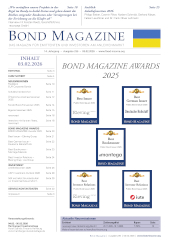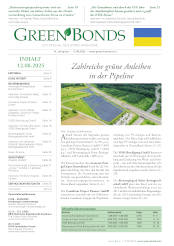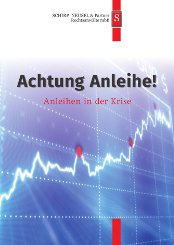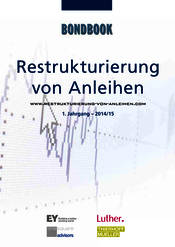With the PIIGS crisis still brewing and fomenting a swift German approval and ratification of the Greek bail-out is needed in order to calm down markets again. Even ECB hawks like Axel Weber is calling a German participation in the bail-out of Greece “justifiable”.
But popular German opinion is massively against further bail-out of the self-imposed fiscal problems in the PIIGS countries and the eventual Greek bail-out should be seen as a “quick and dirty fix” of a severe and very current problem. It is fair to say that the fiscal woes of the PIIS countries are less severe, but that definitely does not mean that they are unimportant. And investors should definitely NOT see the Greek bail-out as an expression of precedence for potential bail-outs of the rest of the PIIGS countries.
European policy makers are trying to neglect the worries of the bond market saying that Greece is a special case and that no contagion should be feared. That is clearly not the view of the bond market, as indicated by the higher yields in all PIIGS countries. If no dramatic fiscal austerity programs are implemented, this crisis will spread and grow in especially the PIIGS countries and we would most likely see a restructuring of Portuguese debt within the next 12-24 months as the external debt situation of Portugal is much worse than that of Greece and since the combined (public + private) debt of Portugal is prohibitive for an “internal solution”.
We have consistently warned about this scenario for the past two years where governments have tried to overtake the debt-financed spending binge where the private sector left. The fundamental problem is too much debt and it matters little if it is owned by the government or private sector. In our view, the cyclical situation is still positive after the turnaround in March 2009, but the fact that the total debt burdens in many countries (especially those that could afford it the least) have continued to grow is a huge, destabilizing force – a ticking debt bomb.
In this regard, what we have called the “Nightmare Scenario” has been moving closer every day since the financial crisis began. Yes, the liquidity problems of the financial sector was solved by public debt back-stopping bank liabilities and slowly, (contingent) trust has re-entered the financial system. However, this trust will only last as long as either 1) the banks are considered solvent and liquid on their own (not the case) OR 2) the public sectors are strong enough to credibly back the bank liabilities.
If no reforms are implemented and if the present PIIGS sovereign debt crisis spreads, it will completely A) destroy trust in the public finances (higher yields on government bonds in the PIIGS), B) destroy trust in bank liabilities in the PIIGS, C) freeze private PIIGS debt markets and D) lead to a grinding halt of economic activity in Southern Europe.
The end result for the EUR and the E-Z depends on counter-measures from the EU. If no more bail-outs occur and PIIGS debt restructuring follows in the next two years, the EUR will strengthen, because internal (fiscal and monetary) discipline is kept old-school. If the ECB begins to monetize PIIGS debt and/or bail-out packages are flowing from the North to the South in Europe, the EUR will continue to weaken and the overall economic activity of the whole E-Z will underperform for the long-term. Unfortunately, we believe that the latter option carries the highest likelihood.














